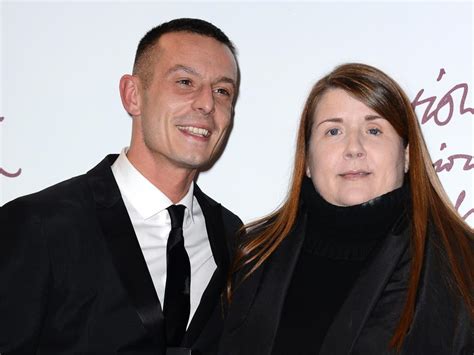A Quote by GRiZ
When you first start photographing a show or being into photography, you might think it's cool to see people with their phones, like, 'It's so novel; everyone cares about this moment so much,' but then it becomes... trite, y'know, and shallow. I think the best moments of my life have been spent without phones.
Related Quotes
There was once this viral photo of the Pope doing his Pope-mobile parade, and everyone had their phones up. But there was this one old woman looking over the fence so beautifully at him. She was totally in the moment. For me, then, I think there shouldn't be any phones at a Pope-mobile situation - or at a Beyonce concert.
One metaphor for how we are living is that you see so may people with cell phones. In restaurants, walking, they have cell phones clamped to their to heads. When they are on their cell phones they are not where their bodies are...they are somewhere else in hyperspace. They are not grounded. We have become disembodied. By being always somewhere else we are nowhere.
We're a community of a billion-plus people, and the best-selling phones - apart from the iPhone - can sell 10, 20 million. If we did build a phone, we'd only reach 1 or 2 percent of our users. That doesn't do anything awesome for us. We wanted to turn as many phones as possible into 'Facebook phones.' That's what Facebook Home is.
No matter how much we're on our phones, going to the show is the goal - you look at things online and watch videos and read blogs and comment, all so that you can go in person and see it yourself, and meet these people in real life, and then so you can go home and talk about it again on your screen.
In cinema people are always walking into something and saying this is who I am, what I want, and how I'm going to get it and we don't in life - particularly not in public situations. People might know your first name, not your last name, they don't know what you do, and you're not going to offer it up. So if you start there and you realize this is a much more normal presentation in a film then you would ordinarily have; you know that there is a big life behind what everyone presents and that I think is super interesting.
Many students don't really like it (fashion). If they don't like it, they won't be able to tell you who the stylists are or the photographers. If they say they can't remember the names but they recognize the work, I'll say that's bullshit because if you were selling mobile phones, you'd know all about the phones' features and tariffs.




































